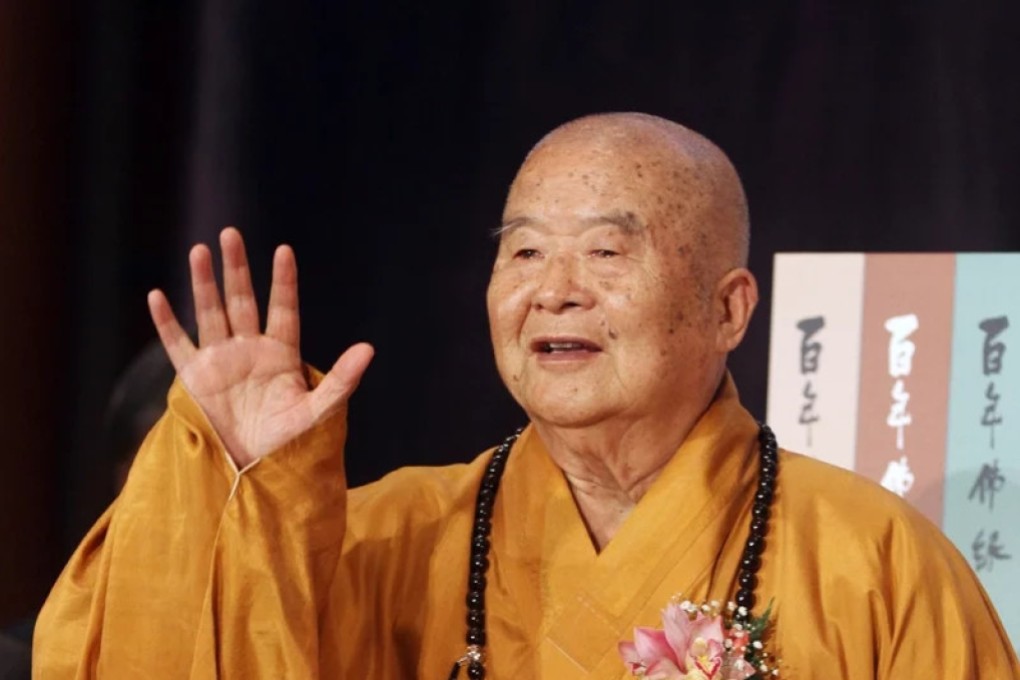Editorial | Voice of wisdom to be missed by strait rivals
- Teachings of late Buddhist master Hsing Yun carried much weight in mainland China and Taiwan, but the matter of politics was never far away

Late Buddhist master Hsing Yun was laid to rest after a ceremony on Monday. The occasion that drew tens of thousands of followers to the southern city of Kaohsiung in Taiwan was not just a moment for condolences and tributes to one of the most influential religious leaders across the island, mainland China and beyond. It also prompted reflection on cross-strait relations and reunification, an issue close to the heart of the revered monk.
The founder of the Fo Guang Shan monastery died earlier this month. He was 95. Born in the mainland province of Jiangsu, Hsing Yun received Buddhist teaching at the Jiaoshan Buddhist College, before moving to Taiwan in 1949 and becoming helmsman of a religious group with hundreds of centres worldwide. He was also no stranger to Hongkongers, having visited and given lectures.
His influence did not just extend to spiritual well-being. Even though he acknowledged Buddhists did not get involved in political issues, he did not steer clear of them either.
His vocal advocacy of peaceful reunification made him not only a guest of presidents on both sides of the Taiwan Strait, but also a target of criticism by pro-independence forces on the island.
He was also once blacklisted by Beijing for reportedly supporting Xu Jiatun in the United States, after the former head of the Xinhua News Agency in Hong Kong fled following the Tiananmen crackdown in Beijing in 1989.
